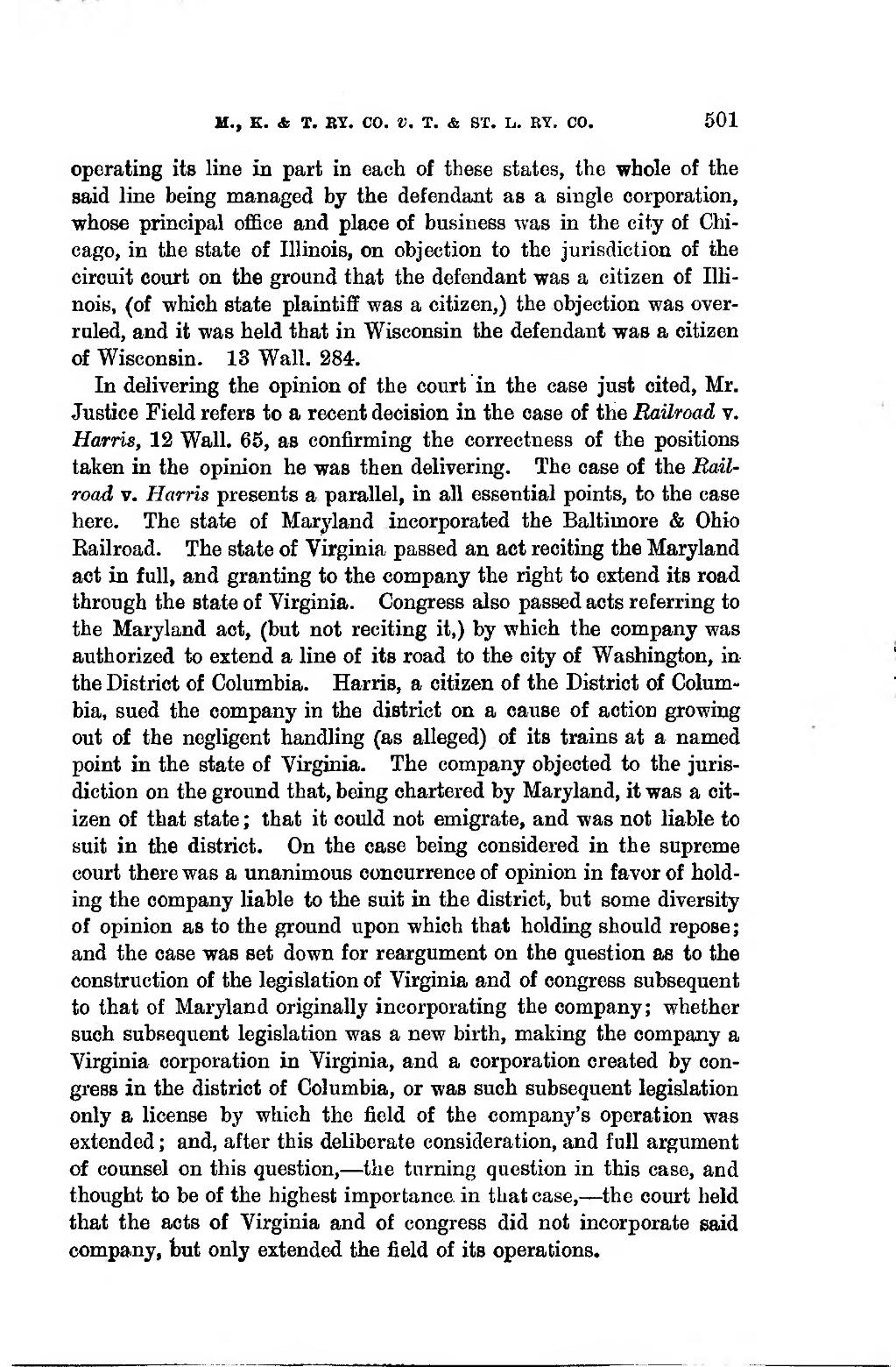M., K. <fe T. BY. CO. V. T. & ST. L. RY. CO. 501 �operating its line in part in each of these states, the whole of the said line being managed by the defendant as a single corporation, whose principal office and place of business was in the city of Chi- cago, in the state of Illinois, on objection to the jurisdiction of the circuit court on the ground that the defendant was a citizen of Illi- nois, (of which state plaintiff was a citizen,) the objection was over- ruled, and it was held that in Wiseonsin the defendant was a citizen of Wiseonsin. 13 Wall. 284. �In delivering the opinion of the court in the case just cited, Mr. Justice Field refers to a recent decision in the case of the Railroad v. Harris, 12 Wall. 65, as confirming the correctness of the positions taken in the opinion he was then delivering. The case of the Rail- road V. Harris presents a parallel, in all essential points, to the case here. The state of Maryland incorporated the Baltimore & Ohio Railroad. The state of Virginia passed an act reciting the Maryland act in full, and granting to the company the right to extend its road through the state of Virginia. Congress also passed acts referring to the Maryland act, (but not reciting it,) by which the company was authorized to extend a line of its road to the city of Washington, in the District of Columbia. Harris, a citizen of the District of Colum- bia, sued the company in the district on a cause of action growing out of the negligent handling (as alleged) of its trains at a named point in the state of Virginia. The company objected to the juris- diction on the ground that, being chartered by Maryland, it was a cit- izen of that state ; that it could not emigrate, and was not liable to suit in the district. On the case being considered in the supreme court there was a unanimous concurrence of opinion in favor of hold- ing the company liable to the suit in the district, but some diversity of opinion as to the ground upon which that holding should repose; and the case was set down for reargument on the question as to the construction of the legislation of Virginia and of congress subsequent to that of Maryland originally incorporating the company; whether such subsequent legislation was a new birth, making the company a Virginia corporation in Virginia, and a corporation created by con- gress in the district of Columbia, or was such subsequent legislation only a license by which the field of the company's operation was extended ; and, after this deliberate consideration, and full argument of counsel on this question, — the tnrning question in this case, and thought to be of the highest importance, in that case, — the court held that the acts of Virginia and of congress did not incorporate said company, but only extended the field of its operations. ��� �
Page:Federal Reporter, 1st Series, Volume 10.djvu/513
This page needs to be proofread.
